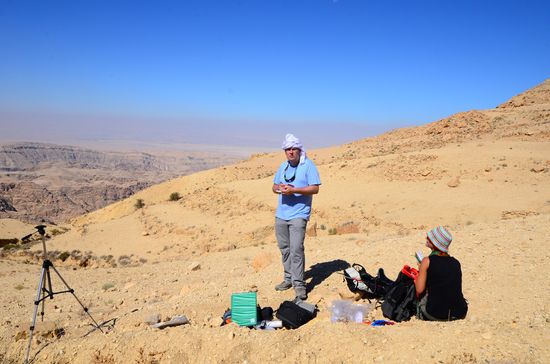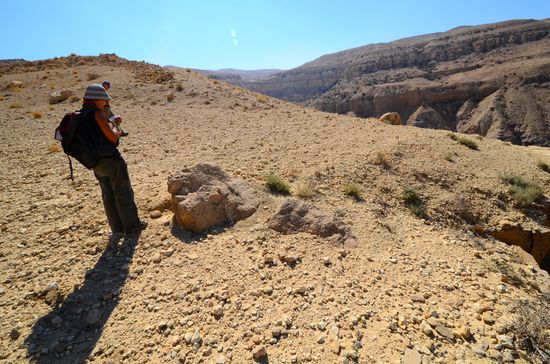Pioneer Jagiellonian University research project in Jordan

A new research project of the Jagiellonian University will start soon in the Middle East. The archaeologists and archaeology students from Kraków are going to carry out excavations in south Jordan. The project is led by Dr Piotr Kołodziejczyk and Dr Wojciech Machowski of the JU Institute of Archaeology. In collaboration with the Department of Antiquities of Jordan, an area near the town of At-Tafila was selected for the excavations, during which the Polish researchers are expecting to find traces of human presence in the period from the Stone Age up to the Roman era. The area is located near some important archaeological sites, including the Edomite Capital, Bozrah and the rocky stronghold of Sela, which is often considered an important cultural centre and the location of a great battle between Israelis and Edomites. The famous copper mine valley of Wadi Feynan, which played a major role in the economy of the emerging ancient Egyptian state in the early Bronze Age, is also located nearby.
The JU archaeologists are especially interested in the Bronze Age finds that could help find answers to many questions related to human presence in Edom during that period. The second research subject pertains to the role of this micro-region in the Nabataean and Roman period, including its links to trade routes and other important settlements of the north part of Edom plateau.
As far as the long term-research is concerned, the JU archaeologists are going to especially focus on the major trade and communication routes in South Jordan, as well as the role of environmental conditions in the development and evolution of human activity in this area. This is because their study marks the beginning of a series of thematically and methodologically integrated research into the role of landscape in archaeology. The project, entitled Landscape Archaeology Surveys, is aimed at better understanding the processes of cultural change in their environmental context. Besides archaeologists, it is going to involve researchers from other disciplines in the years to follow.
This year's research is to be carried out in a very difficult, mountainous terrain. Some parts of the area are virtually inaccessible and thus the use of rock-climbing techniques, or even drones will be required. The vast valley (wadi) starts at the Edom plateau near the town of At-Tafila and descends to Wadi al-Araba, which stretches between the Dead Sea and the Gulf of Aqaba. The Kraków archaeologists will record all sites and relics in the north-east part of the excavation area, and devise a research plan for the seasons to come. The resulting database will be further processed in the Geographic Information System (GIS).
The activities of the JU Institute of Archaeology are the first independent Polish research project conducted in Jordan. It would not be possible without tremendous support from the Italian archaeologists of the University of Florence, who have worked in the region for many years, under the supervision of Prof. Guido Vannini. Although the two teams work independently, they have been engaged in a very fruitful collaboration, within the framework of which the Polish team has gained access to the very-well equipped Italian research base in Wadi Musa.




Published by: Łukasz Wspaniały
Uniwersytet Jagielloński

